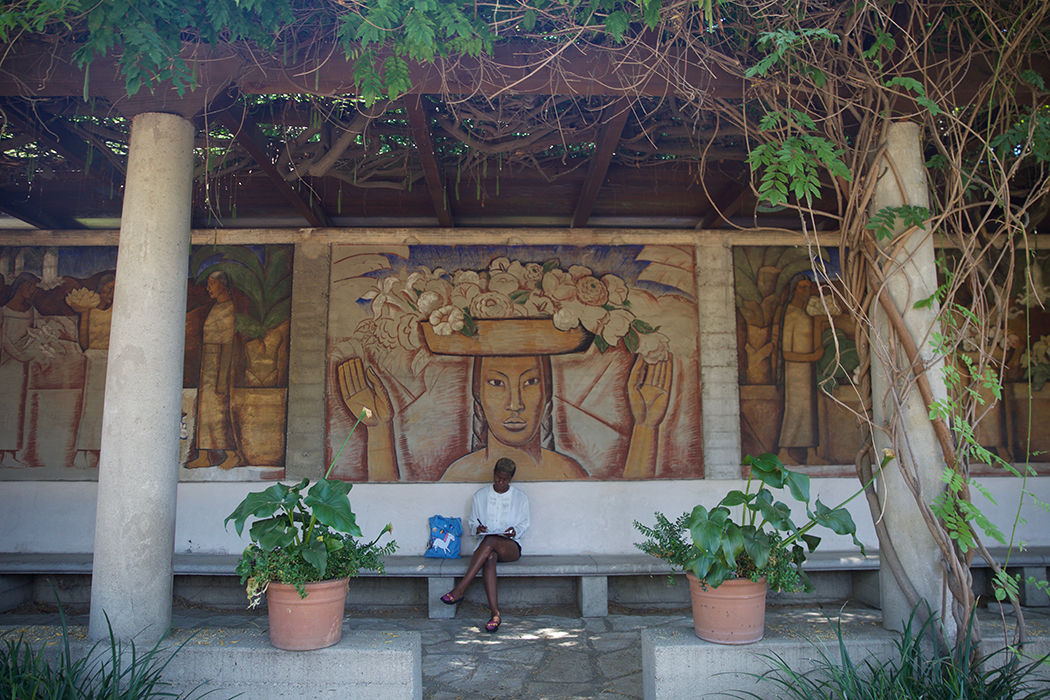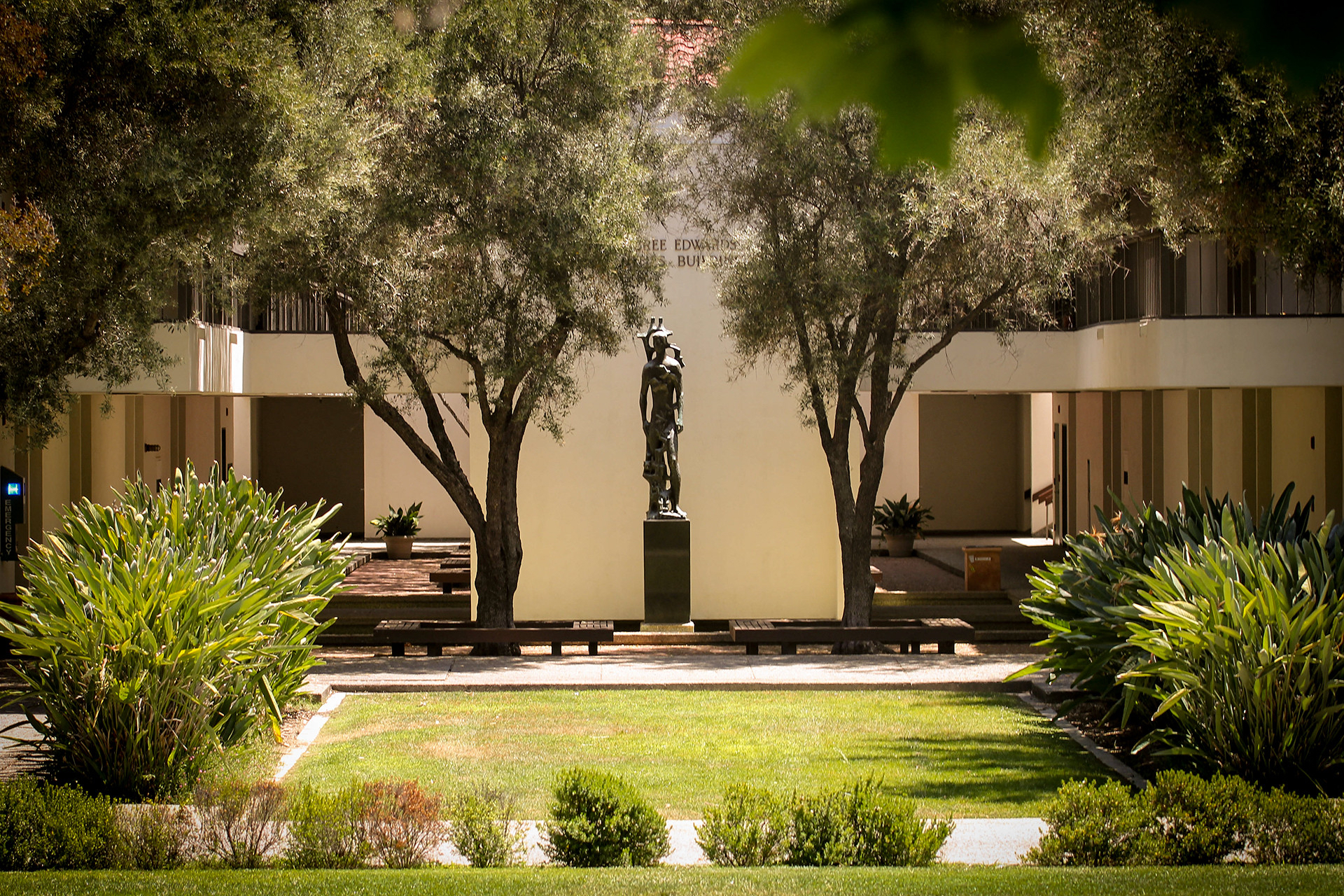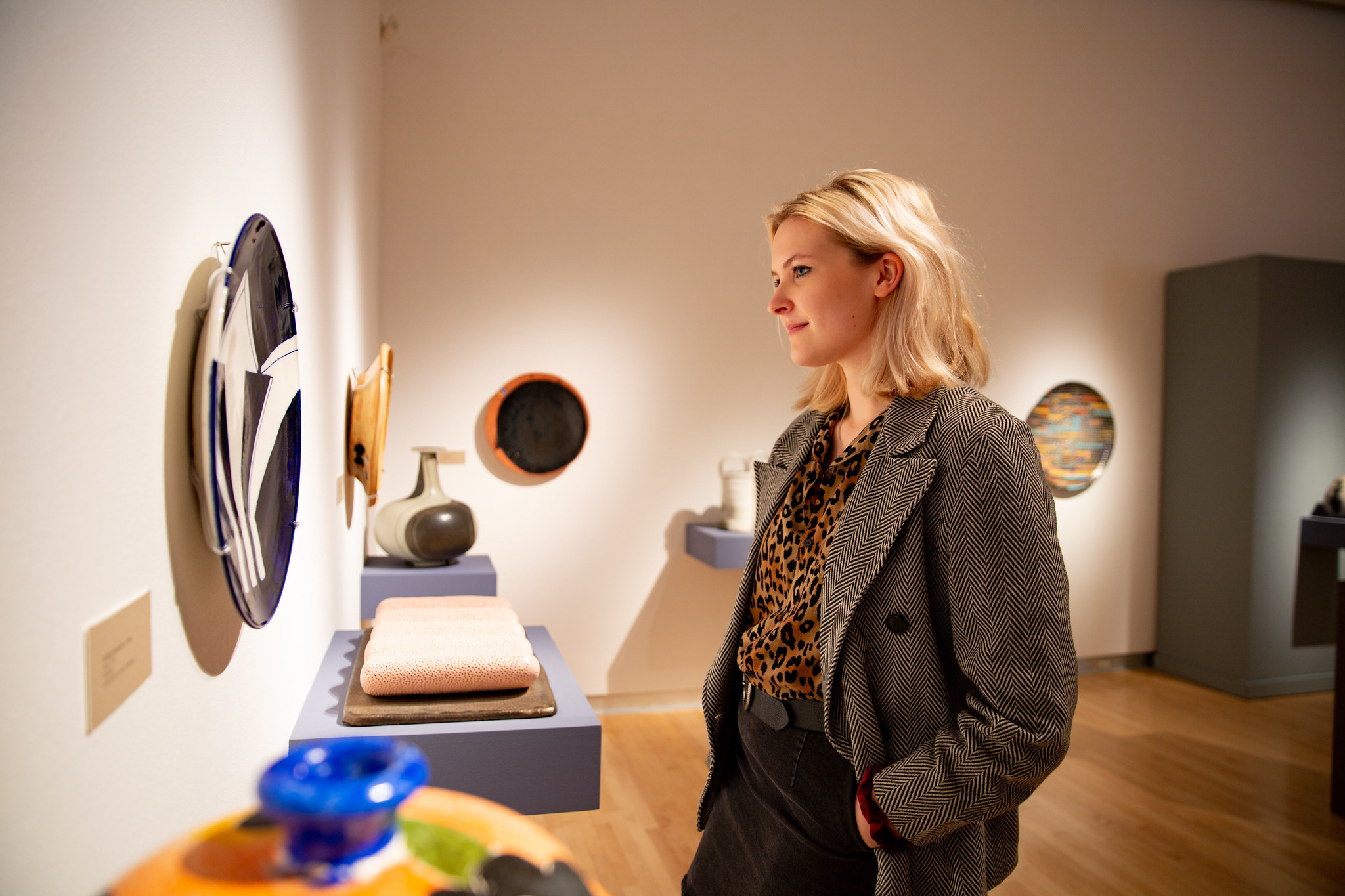Scripps Timeline (page 2)
1946
Alfredo Ramos Martinez, the “Father of the Mexican Mural Movement of the 20th Century,” is commissioned to create the Margaret Fowler Garden, “The Flower Vendors.” The entire composition is sketched on the plaster wall, which is over 100 feet long, and begins work on several panels. He falls ill and passes..Read More
Read More1958
Designed by Smith and Williams of Pasadena, the Music Building opens with a recital hall seating 150, a music library, classrooms, practice rooms, and faculty offices. The hall is named in honor of pianist Lee Pattison, or “Mr. Pat” to students, a Scripps professor of music. The Caster Music Library..Read More
Read More1960
Scripps’ fifth residence hall, Mary Kimberly Residence Hall, opens to students. The hall is funded in part by gifts from friends and trustees of Harvey Mudd College, whose female students are housed in Kimberly from 1960-1980. The hall honors Mary Kimberly Shirk of Redlands, a longtime trustee of Scripps and..Read More
Read More1963
Garrison Theater opens to provide a facility for all the Claremont Colleges to use for theatrical productions, concerts, movies, lectures, and other events. Longtime Scripps trustee Robert H. Garrison and his wife, Catherine Garrison, who graduated from Pomona College and Claremont Graduate University, provide the initial funding.
Read More1966
To accommodate 200 new students, two new residence halls are built on the east side of campus, Frankel and Routt. Originally conceived as a single facility with three wings by architects Criley and McDowell, the structure was reconfigured to offer a greater variety of room arrangements (singles, doubles, triples, suites, and kitchenette apartments)..Read More
Read More1970
Bette Cree Edwards Humanities Building opens to serve as the principal classroom facility for the campus and the interdisciplinary Humanities Program. It is named for Bette Cree Edwards ’49, a former member of the Board of Trustees. Architect John Carl Warneke combines modern forms with the traditional Mediterranean style of..Read More
Read More1972
Scripps honors its first president, Ernest J. Jaqua, by renaming the central grassed area Jaqua Court and Quadrangle. The primary green remains a gathering place for residents and visitors alike, and it is the site for several annual College events during Fall Orientation, Family Weekend, and Commencement, among others.
Read More1976
John H. Chandler is appointed president of Scripps College, serving until 1989. The Southern California Intercollegiate Athletic Conference begins sponsorship of women’s sports. The existing Claremont Men’s College/Harvey Mudd competitive athletics program expands to include students from Scripps. The new program, CMS, chooses the team names the Athenas (women’s teams)..Read More
Read More1994
Quotes of famous women in the arts, letters, and sciences are chosen by a committee of students, faculty, and alumnae to line “Inscription Walk,” a pathway connecting the W.M. Keck Science Center to Scripps’ east side of campus. The walk features quotes by scientists Maxine Singer, Rachel Carson, Maria Mitchell..Read More
Read More2000
Gabrielle Jungels-Winkler Hall opens to students. Named for alumna Gabrielle Jungels-Winkler ’72, who provided key guidance to architects on this project in addition to supporting student scholarship programs, an endowed faculty chair in contemporary European studies, a lecture series at the European Union Center of California, as well as other..Read More
Read More2001
The Ellen Browning Scripps Reading Room is added to Denison Library. The room was an existing space redone to house collected papers, books, and personal letters of the College’s founder. The new Scripps Pool is completed and opens, phase one of a three-phase transformation of east campus, which will eventually house the Sallie..Read More
Read More




